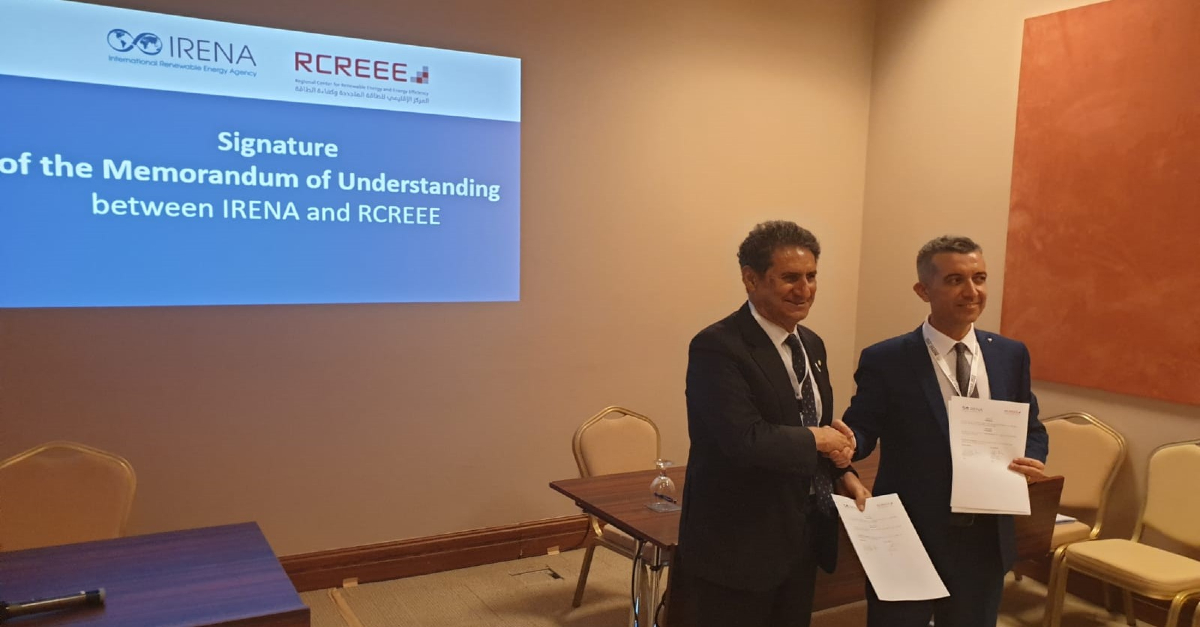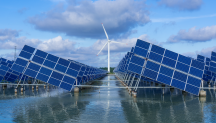

IRENA and RCREEE Strengthen Energy Transition Collaboration in MENA Region
Newsletter

IRENA head signs new agreement with RCREEE Executive Director; hails ability of renewables to safeguard “future generations”
Abu Dhabi, United Arab Emirates, 8 June 2022 — The International Renewable Energy Agency (IRENA) and the Regional Center for Renewable Energy and Energy Efficiency (RCREEE) agreed to strengthen their collaboration on scaling-up renewable energy deployment in the Middle East and North Africa (MENA) region. The Memorandum of Understanding (MoU) was signed in Jordan today, on the margins of the “MENA Europe Future Energy Dialogue,” by IRENA Director-General Francesco La Camera and RCREEE Executive Director Dr. Jauad El Kharraz.
Under the agreement, IRENA and RECREEE will partner on regional dialogues and initiatives that address the challenges, needs, and opportunities of a renewables-based energy transition in MENA countries. The agencies will also share knowledge and cooperate on building capacity in MENA countries particularly through enabling policy and regulatory frameworks that can accelerate renewable energy adoption.
“The energy transition offers a must-seize opportunity for the MENA region,” said IRENA Director-General Francesco La Camera. “By taking advantage of abundant renewable energy resources, countries in the region, many of which are highly dependent on fossil fuels, can future proof their economies and chart a long-term path of sustainable economic growth for future generations.”
“Energy efficiency together with deployment of renewable energies will be key to address the climate change”, said RCREEE Executive Director. “The MENA region thanks to its geographic position, can play a key role in the energy transition process. It is thus of utmost importance to cooperate in order to lead the region into a sustainable future, starting from the reinforcement of the regional cooperation.”
The agreement renews an existing MoU signed by the two organisations in 2015. Since then, IRENA and RECREEE have been strategic partners working closely on multiple joint initiatives, most notably on the Pan-Arab Clean Energy Initiative (PACE) which identified a series of actions to increase renewable energy investments in the region. Through the new agreement, the agencies will introduce new areas of cooperation and adapt existing collaborative activities to recent challenges facing the development of renewable energy in the region.




